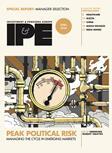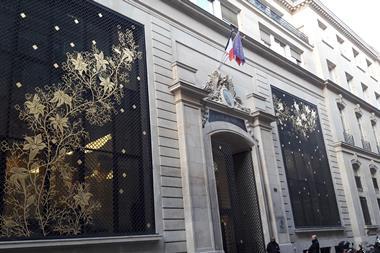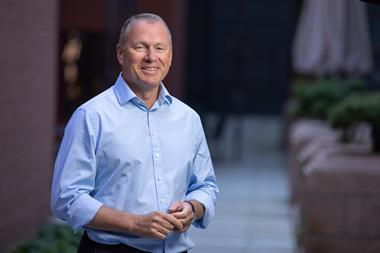Only inflation could knock the recovery in Euroland's equity markets off-course at the moment.
“Inflation having a negative effect on the interest rate environment in Europe is the only possible hiccup I can foresee at present,” warns Paul Severin, head of equities at Capital Invest in Vienna. He believes that there is an outside chance that recent uncertainty, vis-à-vis energy prices, could destabilise inflation in Euroland, and lead to unwelcome rises in interest rates. “I agree with recent projections that the equity markets here are ready to sustain a small rise or two in the short-term rates, but these have already been priced in. Unnecessary rises during this quarter could be detrimental to the current optimism we are seeing in the markets,” he comments.
Severin says that the equity markets across Europe are doing really quite well at the moment and the turnaround shown by fundamentals is worthy of particular mention. However, all sectors appear to be benefiting from the recent surge in investor confidence, high trading levels and good earnings forecasts.
Severin adds that if the recent good earnings and profits predictions materialise later in the year, Euroland will easily weather any storm created by inflation.
Jean-François Mercier, an economist at Salomon Smith Barney (SSMB) in London, is even more optimistic. He believes Euroland GDP growth will quickly return to former trend levels or even surpass them. “Lead guides to Euro-zone economic growth continue to surprise on the upside, compared to consensus projections for a gradual recovery this year,” he notes, adding that all lead indicators of Euro-zone growth turned up markedly during the first quarter this year. The German ifo index of business confidence reached its highest level since June 2000, despite recent bad press about the state of the German economy. “The basic goods sector of the ifo, which tends to be the lead component in the index, is close to the decade’s high and the three month rise in the OECD lead index for the euro-area is the largest in seven years,” Mercier comments.
However, Mercier also highlights the possibility of the ECB having to tighten its interest rate policy in order to sustain a faster than expected recovery and curb inflation. But SSMB doesn’t anticipate a rise, probably 25 basis points, in interest rates until the fourth quarter of the year. “Generally, given the speed of the recovery and the interest rate scenario, the short end of the yield curve is likely to continue pricing in a sizeable premium for upside risks,” he says.
Mercier believes that industrial production across Euro-zone will probably exceed its long-term trend by the third quarter of the year, lifting both investor confidence and exports, and that all sectors are doing well. “The service sector appears to be lagging, but is still recovering, nonetheless,” he says.
However, he points out that there is unlikely to be an acceleration in consumer demand in Europe, despite recent interest rate cuts, since upturns in consumer spending here usually lag the upturn in the actual equity markets by as much as half a year. “Recent ECB research suggests that interest rate changes have less effect on consumer demand in Euro-zone than in the US, but the reverse is true for investments,” he says.
Analysts at Robeco in Rotterdam agree that confidence indicators are pointing to improvements in sentiment in Euroland, but feel that industrial production is still somewhat weak.
However, they don’t deny that the macro-economic environment for stock markets is improving and the ECB’s monetary policy remains supportive for further growth.
To benefit from the economic recovery, Robeco’s Euro-zone equity managers remain overweight in cyclicals and underweight in defensives, whilst raising their exposure to industrials at the expense of healthcare.
In addition, the severe underperformance of equities versus fixed income over the last two years is turning around and equities are now enjoying favourable valuation levels compared with bonds, says Robeco.
SSMB agees that Europe’s equity markets are no longer undervalued in relation to bonds, and that the European earnings yield for equities has turned around sharply in their favour since reaching a 20-year high last September, when the trend was to buy cheap equities and sell bonds.
But SSMB warns that if equities and bonds continue to move in opposite directions the European earnings yield ratio could become “more violent” and have serious implications for equity investors, since, as the gap widens, equities could become too expensive during a cyclical recovery, just as they became too cheap last year when the markets slumped.
The euro seems to have found a level that analysts agree will help its underlying equity markets continue to grow.
Mercier says that Euroland’s bilateral trade balance with the US has improved so much recently that the Euro-dollar exchange rate is now sufficiently competitive for the euro-zone to benefit from stronger demand in dollar bloc countries.












No comments yet